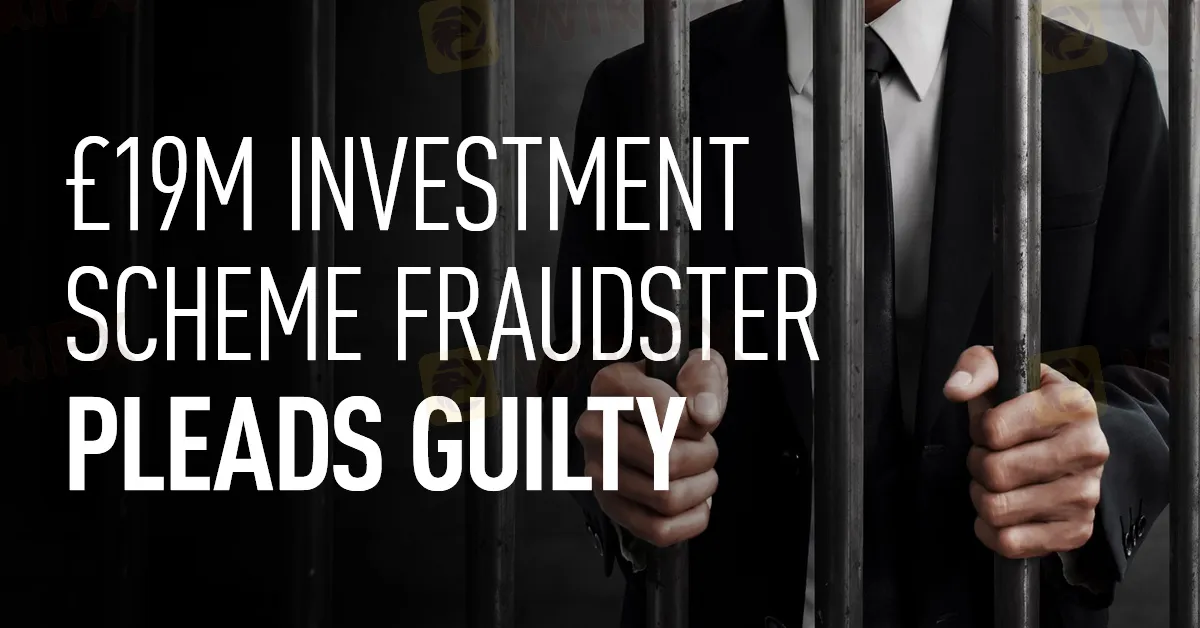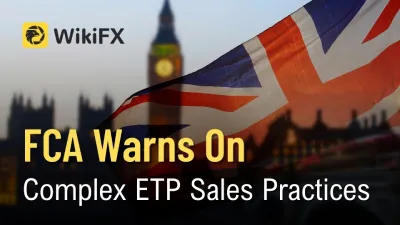FCA Warns on Complex ETP Sales Practices
UK FCA urges firms to tighten complex ETP sales, citing rising retail demand and risks tied to leverage and social media promotions.
简体中文
繁體中文
English
Pусский
日本語
ภาษาไทย
Tiếng Việt
Bahasa Indonesia
Español
हिन्दी
Filippiiniläinen
Français
Deutsch
Português
Türkçe
한국어
العربية
Abstract:Guy Flintham, a resident of Blackburn, has pleaded guilty to orchestrating a £19 million fraudulent investment scheme, deceiving 240 investors, and falsifying documents.

Guy Flintham, a resident of Blackburn, Lancashire, is set to face sentencing on April 26 for orchestrating a fraudulent investment scheme that resulted in the defrauding of approximately 240 investors, amounting to £19 million. The Financial Conduct Authority (FCA) has revealed that Flintham engaged in deceptive practices between January 2016 and November 2021, making false representations to entice investors into his scheme.
Flintham's fraudulent activities extended to the dissemination of misleading information regarding the operation of the investment scheme and the potential profits investors could expect. The FCA further highlighted that he went to the extent of falsifying documents to substantiate his deceptive claims.
The sentencing, scheduled for April 26, will determine the legal consequences for Flintham, who currently faces charges related to financial fraud. His actions have not only resulted in financial losses for the affected investors but have also raised concerns about the need for vigilant oversight and regulation in the financial services sector.

The legal proceedings against Flintham include a count of carrying on regulated activity without the necessary authorization or exemption, as outlined in the Financial Services and Markets Act 2000. This charge, if proven, could lead to fines and a potential prison sentence of up to two years.
It is noteworthy that during the legal proceedings, Flintham pleaded not guilty to the charge of carrying on regulated activity without proper authorization. The trial has been ongoing, with the accused's earlier appearance at Westminster Magistrates Court on January 22. At that time, Flintham refrained from indicating a plea for the fraud offense, but he maintained his plea of not guilty for the carrying on regulated activities charge.
Fraud by false representation, as seen in this case, is considered a serious financial offense and carries significant penalties. If convicted, Flintham may face substantial fines and a maximum prison term of 10 years. The severity of the charges underscores the importance of robust regulatory measures to safeguard investors and maintain the integrity of financial markets.
The case serves as a stark reminder of the potential risks investors face in an environment where fraudulent schemes can undermine trust and financial security. It highlights the ongoing need for regulatory bodies, such as the FCA, to remain vigilant in identifying and prosecuting individuals engaged in financial misconduct, thereby upholding the principles of transparency, accountability, and investor protection.

Disclaimer:
The views in this article only represent the author's personal views, and do not constitute investment advice on this platform. This platform does not guarantee the accuracy, completeness and timeliness of the information in the article, and will not be liable for any loss caused by the use of or reliance on the information in the article.

UK FCA urges firms to tighten complex ETP sales, citing rising retail demand and risks tied to leverage and social media promotions.

TradingMoon operates under offshore regulation by Seychelles FSA. License SD042 covers forex and derivatives trading.

DBInvesting regulation is offshore under Seychelles FSA, offering oversight but limited protection, with reported withdrawal risks for traders.

A 71-year-old property consultant in Pahang lost RM622,161 after being tricked by a fake investment scheme promising 50% profits via WhatsApp.
